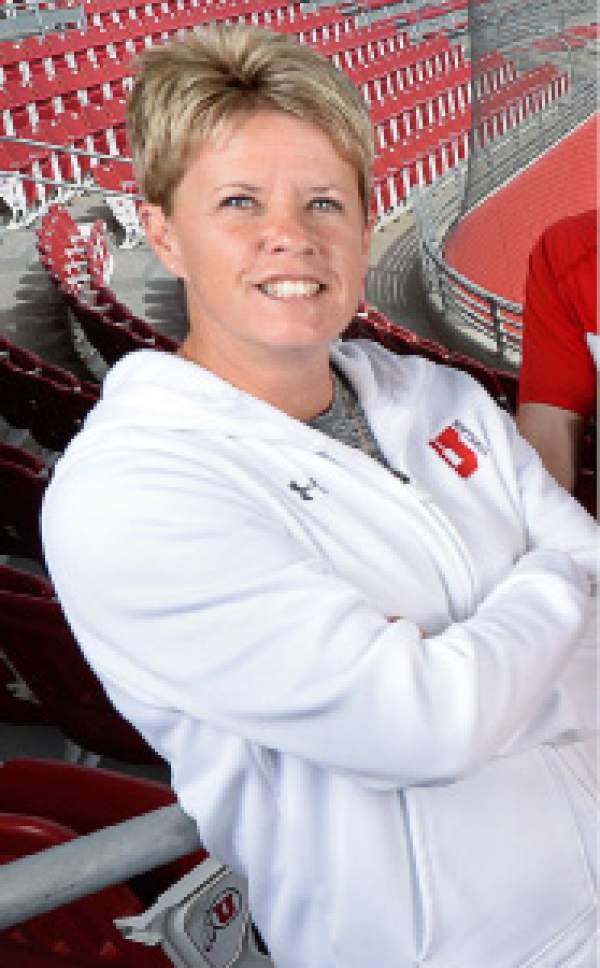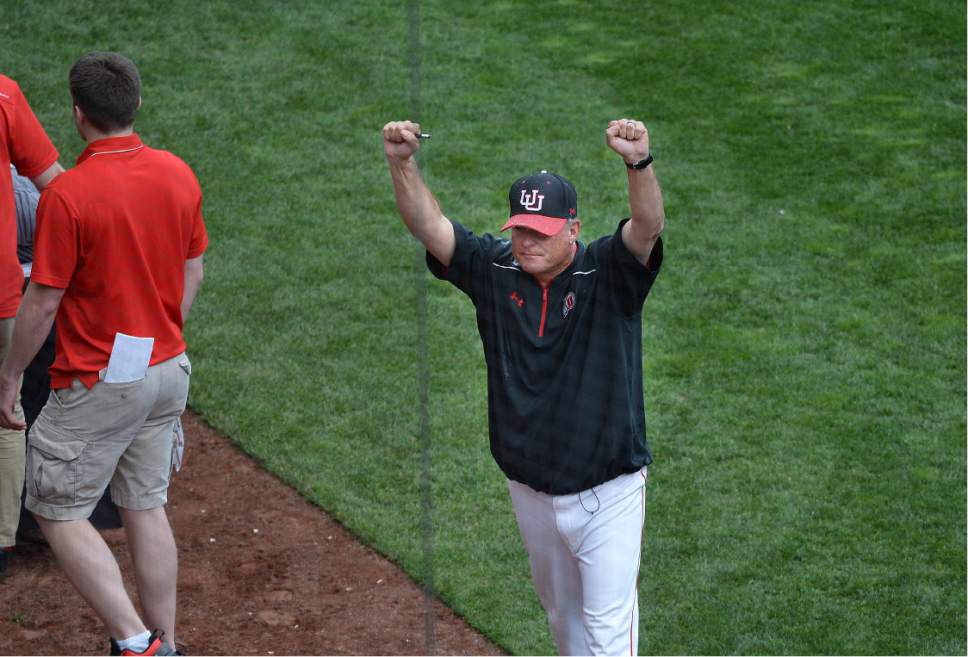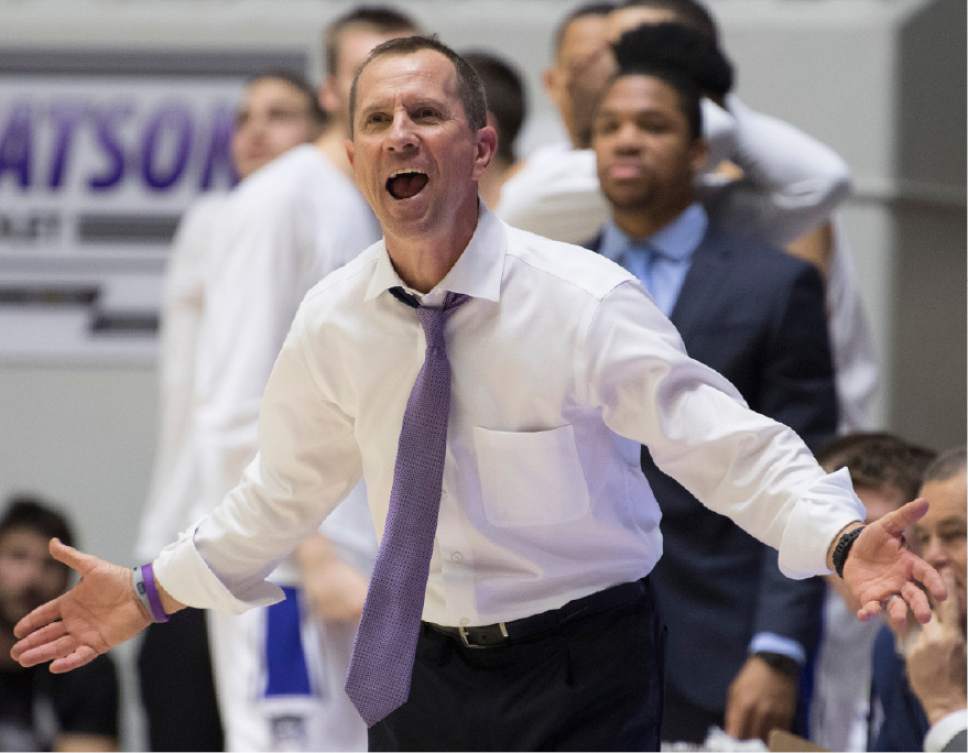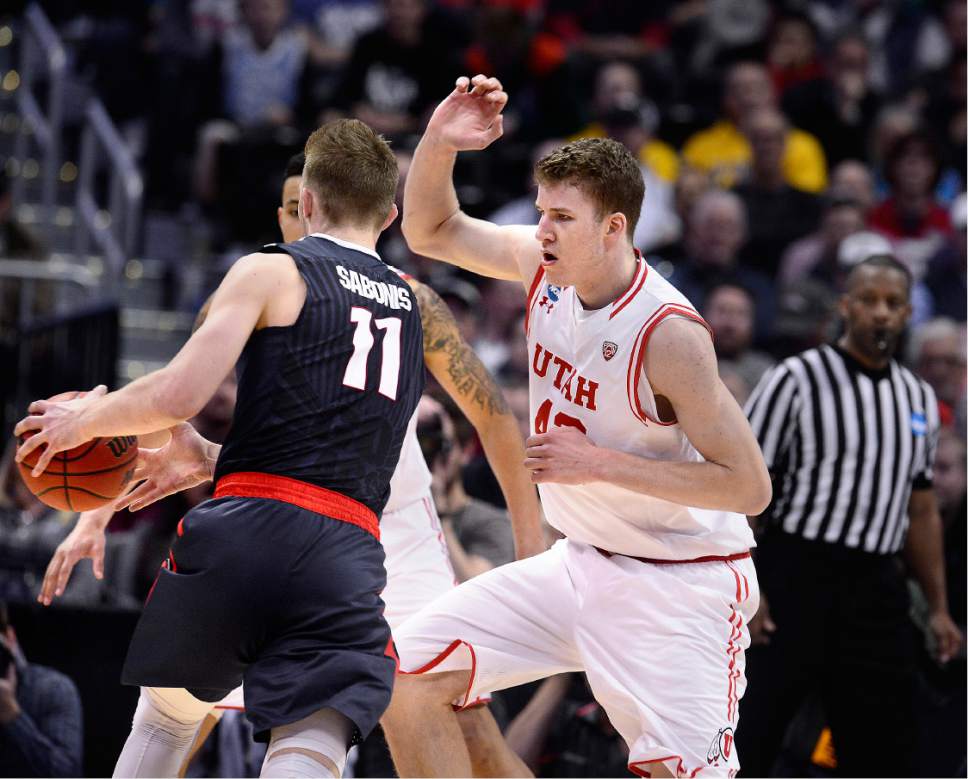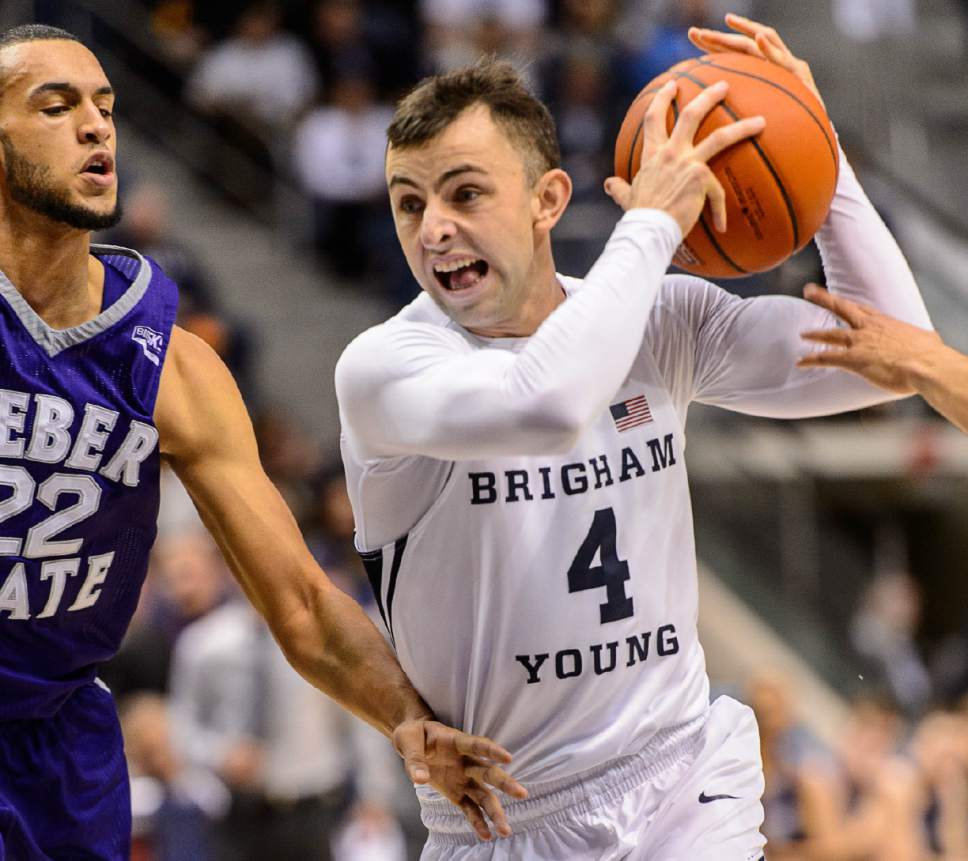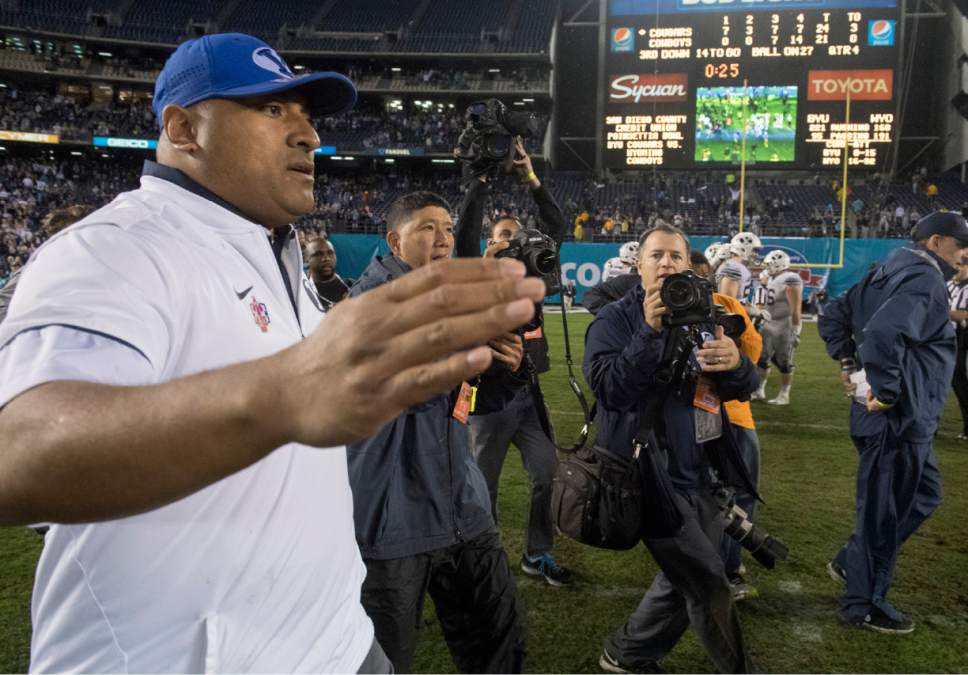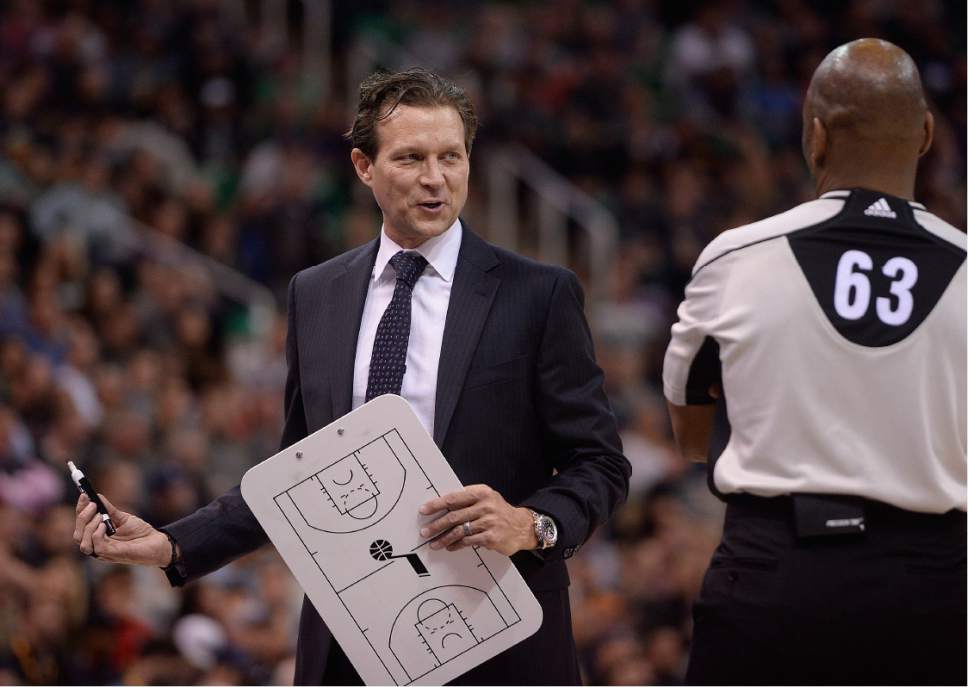This is an archived article that was published on sltrib.com in 2016, and information in the article may be outdated. It is provided only for personal research purposes and may not be reprinted.
There are comely years and uncomely years in sports around here, and, plainly said, 2016 wasn't much to look at. Even worse, it broke our hearts. It had some moments, it had some promise, but, ultimately, on the whole, it needed a brown grocery bag pulled over its head. And, most significantly, it left us crying, it left us mourning as much as cheering.
LaVell Edwards died in 2016. What do you say after that? Only what you have to say when you lose a great coach, a better man, a good friend. You say goodbye, but you remember that legends live on forever.
Two beautiful children of Utah sports notables died in 2016. Everybody wept on account of that, too.
As for the lesser matters of competition, the major players were poised for success, in some cases, unprecedented success, and then … that success fell back into routine rather than remarkable. There were some strong performances by lower-profile teams around the state.
So there was that.
The Jazz had their 2015-16 season punctured by injury, and when they partially healed, it was too late to overcome the earlier holes. They finished at 40-42, outside the eight teams from the West to qualify for the playoffs. Those playoffs were the goal, after a fistful of seasons without them. The more positive news is that the start of the 2016-17 season — the 2016 part of it — holds more promise than the previous one did. And while nobody wants to poke at the Fates, it is clear that the Jazz remedied some of the problems that injury brought them last time around.
Even though injuries have hit them again, punched them in the knees, ankles, fingers, and toes, temporarily benching some of their most important players, they've seemed to weather that adversity. They are getting healthy again, and when they arrive at full form, 2016 will be praised as a great set-up for 2017. It certainly looks as though the Jazz will make the playoffs in April, and they may not just make them, they may make a little hay in them.
Utah football was sitting on top of the world, and seeming to be a legitimate Pac-12 title threat - Granddaddy of Them All, here the Utes come — and then … November happened. Nobody's sure why that particular month and the Utes simply have not mixed, but they haven't. You remember the losses … Washington, which technically came on Oct. 29, Oregon and Colorado. A 9-4 season, which included Wednesday's win in the Foster Farms Bowl over Indiana, appears sweet and all, but given what might have been, it was bitter.
BYU football ended with an identical 9-4 mark, but because expectations were never as high for the Cougars as for the Utes, the record sat a bit more easily. Kalani Sitake's first season at the helm got off to a rough 1-3 start, but going 8-1 down the stretch portends better results, better recruits, better success in future seasons. That's what 2016 was for the Cougars — a tee up for whatever comes next.
The Utah-BYU rivalry game at Rice-Eccles was memorable for its ending, when the Cougars could have tied the game with a PAT, but opted to go for two to win the game. They couldn't and the Utes won, again.
A tender touch came to the football rivalry through the aforementioned tragedies. Former Cougar running back and current running backs coach Reno Mahe's family lost 3-year-old daughter, Elsie, to an accident in their home. Shortly thereafter, former Utah safety Steve Tate's family lost a 20-month-old son, Hayes, to cancer. The double-dose of unimaginable pain penetrated the hearts and souls of darn near everybody in the state. And the hurt at the departure of the innocents brought people together. Sometimes, tears help people see more clearly what's most important.
Utah State football had the anchor out all season, but especially at the end when the Aggies lost five straight games. All told, they finished 3-9, 1-7 in the Mountain West, which against the standard now set for this program can only be seen as a flop.
Weber State football took a modest step up in 2016, winning seven games, after winning six the year before and only two the year before that. The Wildcats qualified for the FCS playoffs, where they were beaten by Chattanooga.
BYU basketball never amounted to much. It's not like the Cougars were dog meat, but it seemed rather clear that this particular team couldn't sustain the kind of play necessary to make a run into the NCAA Tournament, which is the baseline for any season to be remembered. Dave Rose's team had moments — but not enough of them, not winning the West Coast tournament, not making the big tournament, only winning a few games in the NIT, which, really, doesn't spin many beanies anymore.
Utah basketball had some big-time potential. Jakob Poeltl returned for the 2015-16 season after the Utes' run to the Sweet 16 the year before, and the Utes finished second in the Pac-12 and compiled a record of 27-9. Only problem was that last loss was a blowout at the hands of Gonzaga in the round of 32 in the NCAA Tournament, a result that could only be counted as a disappointment.
One of the year's more notable stories was Larry Krystkowiak's decision, after an incident in the 2015-16 Utah-BYU game at the Huntsman Center, not to play BYU in the early part of the 2016-17 season, interrupting a series that had been played for a century, for some 50 years before Krystkowiak was born. All hell broke loose on that one, with nearly everyone having an opinion on the matter, particularly people in positions of power. Even the governor commented that the game should be played. The governor was right. Krystkowiak overreached and overreacted.
Weber State had a decent showing under Randy Rahe, winning the Big Sky, and then losing to Xavier in the first round of the NCAAs. Utah State won 16 games and landed in a tie for eighth in the Mountain West. BYU's women's team went 26-7 overall, and lost to Missouri in the NCAA Tournament.
The best basketball story of the year was Salt Lake Community College's obscured journey to a junior college national championship. The Bruins won 31 games en route, including the five straight necessary to win the title, all of those wins over ranked JC teams.
As for great stories, Bill Kinneberg's floated to the top in 2016, when his Utah baseball team came out of nowhere to win the Pac-12 championship, which was the first time any Utah men's team had won a Pac-12 title. Their overall mark was hardly extraordinary, but the Utes finished 19-11 in league and qualified for the NCAA Regionals, where they beat Mississippi, but lost to Boston College and Tulane. Kinneberg was named the Pac-12 coach of the year.
BYU baseball finished with a sparkling record of 37-17, but lost in the WCC tournament to Gonzaga and Pepperdine, end of story.
The Utah women's softball team won two NCAA games, making the NCAA Super Regionals. BYU's men's cross country team finished seventh in the NCAAs and the women were 10th. BYU men's volleyball team won a conference title before making it to the NCAA championship match, where it lost. As for the women, BYU qualified for the national volleyball tournament, losing to Texas; Utah qualified for the NCAAs, and lost to UNLV.
BYU and Utah's soccer teams had above-average seasons, especially the Cougars, who went 18-3-1, and eventually fell to No. 3-ranked South Carolina in the NCAA tournament. Utah was 13-4-5, beating Texas Tech and Florida State in the tournament. Utah skiing finished third in the NCAA ski championships. Utah gymnastics qualified for the NCAA championships, but finished outside the final six, technically landing in ninth place.
If we missed anything here, we didn't really. Hang onto those bright moments of the past year, let the duller moments fade. It's the sports we saw, the life we lived, the tears we shed.
Time to say adios, auf wiedersehen, sayonara, goodbye to 2016.
And hope that 2017 brings better, happier things to sports in Utah.
GORDON MONSON hosts "The Big Show" with Spence Checketts weekdays from 3-7 p.m. on the Zone Sports Network, 97.5 FM and 1280 AM. Twitter: @GordonMonson.


